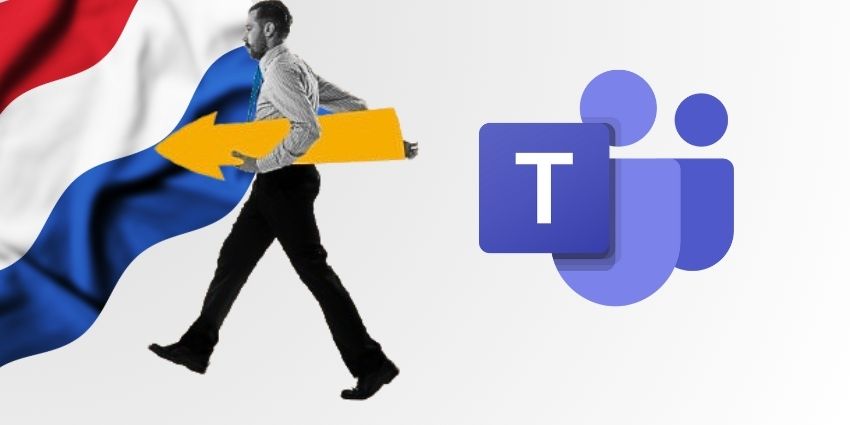Several Dutch ministries are actively reconsidering their reliance on Microsoft Teams as concerns mount over strategic dependence on American technology platforms.
The interdepartmental program “Beter Samenwerken” (Better Collaboration) is spearheading this evaluation, with the Ministries of Justice, Security, and the Interior leading the charge to reassess their UC infrastructure.
Minister Paul of Social Affairs has highlighted the critical vulnerabilities inherent in this dependence, warning that “an abrupt denial would affect essential support processes such as email, collaboration via Teams, document exchange, and security monitoring.”
This assessment underscores how deeply Microsoft’s collaboration tools have become embedded within government operations, creating potential single points of failure that could cripple administrative functions.
Yet the timing of this reconsideration, amid a broader European trend away from American cloud services, suggests Microsoft has failed to quell sovereignty concerns through localized offerings.
Current Implementations
The Dutch approach to Microsoft 365 reveals a patchwork of implementation strategies, with ministries adopting varying levels of integration based on their security assessments.
The Ministry of Justice and Security exemplifies the most cautious approach, with outgoing Minister Van Oosten emphasizing that they avoid the online cloud version entirely, instead limiting Microsoft Teams usage to “video conferencing and chat” only.
This restricted deployment strategy allows them to store files on local drives and through the Government Data Center in compliance with national security frameworks.
The contrast between ministries is stark. While Justice maintains an arm’s-length approach, other departments have embraced broader Microsoft 365 integration.
The Movable Property Division completed its migration to Microsoft 365 just last year, while the Tax and Customs Administration plans a similar transition—highlighting the lack of a unified governmental policy on cloud adoption.
Outgoing State Secretary for Digitalization Van Marum said that dependencies are not always avoidable, yet he emphasized that “the aim is to avoid strategic dependencies where possible.”
Because of these dependencies, the interdepartmental initiative is evaluating the intended use of Microsoft Teams in work environments and investigating alternatives.
Microsoft Concessions Can’t Quell European Exodus
The Dutch reconsideration occurs against a backdrop of accelerating European migration away from Microsoft products.
Germany’s Schleswig-Holstein region has committed to eliminating Microsoft programs within three months, affecting 60,000 users in a dramatic demonstration of digital independence.
Danish authorities have taken similarly decisive action, with Digitalization Minister Caroline Stage Olsen announcing a government-wide transition from Microsoft Office to LibreOffice. The country’s largest municipalities, Copenhagen and Aarhus, have already terminated their Microsoft agreements, while Emergency Situations Minister Torsten Schack Pedersen has directed organizations to “create exit plans for the use of cloud services.”
These moves coincide with broader legislative pressure, as Dutch parliamentarians have passed eight motions urging their government to abandon U.S.-made technology in favor of domestic alternatives.
In response, Microsoft launched 365 Local and Azure Local. Microsoft 365 Local and Azure Local operate much like the online version, but with the key difference that hosting can be provided through a Sovereign Public Cloud, Sovereign Private Cloud, or National Partner Clouds.
The offering promises data residency within European borders under European legal frameworks, with operational control by European staff.
This latest news from the Netherlands, however, means Microsoft’s response through 365 Local appears insufficient to stem the tide.
Strategic Independence Versus Operational Realities
The Dutch governmental position reflects the complex balance between achieving strategic independence and maintaining operational effectiveness in an interconnected digital ecosystem.
Outgoing Finance Minister Eelco Heinen provides a pragmatic perspective, arguing that dependency is inherent in any ICT solution, whether cloud-based or developed in-house, noting that “even with on-premises solutions, the loss of Microsoft or Apple support could result in the loss of crucial functionality.”
Whether this idea to pivot away from Teams is the first step in a broader migration, or simply an attempt to diversify vendor reliance, remains to be seen.
The outcome may well determine the future of Microsoft’s European government business.







